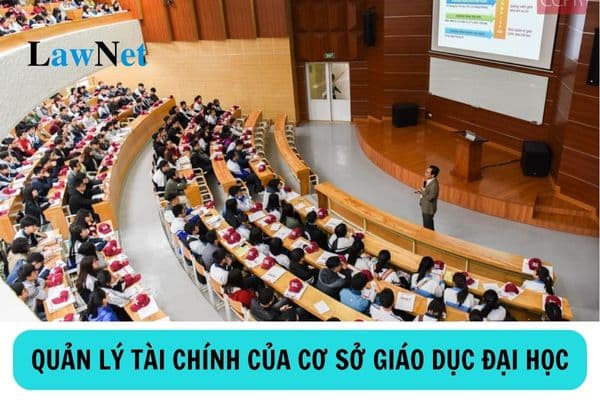What are the regulations on financial management of higher education institutions in Vietnam?
What are the regulations on financial management of higher education institutions in Vietnam?
According to the provisions of Article 66 of the Law on Higher Education 2012, as amended by Clause 34, Article 1 of the Law on Amendments to the Higher Education Law 2018, the financial management of higher education institutions is regulated as follows:
- Higher education institutions shall implement financial policies, accounting, auditing, taxation, asset valuation, and financial transparency according to the provisions of law.
- For public higher education institutions that can fully ensure their regular expenditures, the university council or school board shall decide on the use of financial resources as follows:
+ Decide the use of lawful income outside the state budget to invest in projects implementing training, scientific research, and technology transfer activities;
+ Decide the content and level of expenditure from tuition fees and other income, funding sources from ordered tasks or assigned tasks, including salaries, professional activities, and management expenses according to the internal expenditure regulations of the higher education institution.
- Higher education institutions assigned tasks by the State with associated state budget funding must manage and use these funds in accordance with public financial management and public asset management laws.
- The financial surplus from the income and expenditure of training, science, and technology activities of private higher education institutions must allocate at least 25% for the development of the higher education institution, education activities, infrastructure construction, equipment procurement, training, and retraining of lecturers, educational management staff, employees, serving learners' study and activities, and fulfilling social responsibilities.
For non-profit private higher education institutions, the entire financial surplus from annual accumulated revenue and expenditure is indivisible common property of the school community to continue investing in the development of the higher education institution.
- Annually, higher education institutions must conduct audits and disclose financial statements, and the use of financial resources must comply with the provisions of law.

What are the regulations on financial management of higher education institutions in Vietnam? (Image from the Internet)
What are the financial sources of higher education institutions in Vietnam?
Based on Article 64 of the Law on Higher Education 2012, as amended by Clause 32, Article 1 of the Law on Amendments to the Higher Education Law 2018, the financial sources of higher education institutions include:
- Revenues of higher education institutions, including:
+ Tuition fees and income from training, science, and technology activities, and other service revenues supporting training activities;
+ Revenue from order-based training, research by the state, organizations, and individuals; performing state-assigned tasks;
+ Revenue from investments of domestic and foreign organizations and individuals; additional financial sources from the annual activities of higher education institutions;
+ Revenue from business activities, community services, financial investments (if any), and other lawful revenues;
+ Loan capital.
- Sponsorships, aids, donations from alumni, organizations, individuals domestic and foreign.
- State budget allocations (if any).
What principles govern the management and use of assets in public higher education institutions in Vietnam?
Based on Clause 1, Article 67 of the Law on Higher Education 2012, as amended by Clause 35, Article 1 of the Law on Amendments to the Higher Education Law 2018, the following provisions apply:
Management and use of assets in higher education institutions
1. Assets of public higher education institutions shall be managed and used according to the principles of public asset management and utilization. Higher education institutions are allowed to use public assets for business, leasing, joint ventures, and partnerships in accordance with the law to develop higher education, ensuring maintenance and development, suitable to the educational environment.
- Assets of private higher education institutions, and non-profit private higher education institutions shall be managed and utilized according to the following principles:
a) State assets and land use rights granted by the State to the higher education institution must be managed and used according to the laws on public asset management and land laws. They shall not be converted into private ownership under any circumstances. Any changes in the use of other state assets must follow the principles of maintenance and development; land use changes must comply with the provisions of land laws;
...
Thus, the principles for managing and using assets in public higher education institutions align with public asset management and utilization principles.
Public higher education institutions are allowed to use public assets for business, leasing, joint ventures, and partnerships to develop higher education, ensuring maintenance and development, suitable to the educational environment.

